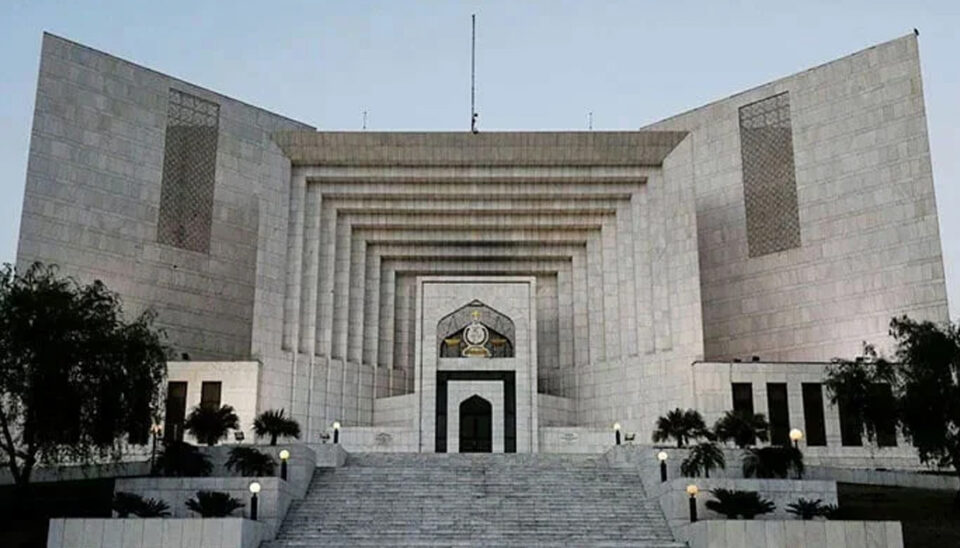SC Overturns 2022 Verdict on Article 63(A), Paving Way for Judicial Reform Amendments
ISLAMABAD: The Supreme Court of Pakistan has set aside its 2022 ruling on the interpretation of Article 63(A) of the Constitution, which prevented lawmakers from voting against party directions in parliament. This decision comes as a five-member bench, headed by Chief Justice Qazi Faez Isa, accepted a review plea filed by the Supreme Court Bar Association (SCBA), potentially clearing the path for the ruling coalition to pass critical constitutional amendments on judicial reforms.
The bench, which included Justices Aminuddin Khan, Jamal Khan Mandokhel, Naeem Akhtar Afghan, and Mazhar Alam Khan Miankhel, unanimously annulled the earlier verdict on the defection clause of Article 63(A). The court’s short order noted that the reasons for this decision would be provided at a later date.
The initial ruling, delivered by a different bench in 2022, had restricted lawmakers from voting against party directives, rendering any such votes invalid. This verdict had sparked debate, with the SCBA subsequently filing a review petition, arguing that while dissident lawmakers could be de-seated, their votes should still be counted as per the Constitution.
During the hearing, Barrister Ali Zafar, representing Pakistan Tehreek-e-Insaf (PTI) founder Imran Khan, boycotted the proceedings after the court denied his request for Khan to address the court via video link. Chief Justice Isa urged the counsel to proceed with his arguments, emphasizing the need for decorum and respect for court proceedings.
Zafar raised concerns about the potential for political manipulation in light of the court’s decision, suggesting that the ruling could lead to “horse trading” among parliamentarians. The chief justice strongly rejected these claims, cautioning against making statements that undermine the judiciary.
Justice Jamal Mandokhel clarified that while the court had provided an opinion on Article 63(A), it had not issued a final decision. He urged political leaders to resolve their issues through dialogue, emphasizing that the court’s role was to uphold democracy and constitutional law.
The SC’s decision has prompted varied reactions. PTI representatives have expressed concern over the implications for democracy, with some fearing that it may encourage political maneuvering. On the other hand, leaders from other political parties, including the Pakistan Muslim League-Nawaz (PML-N), have welcomed the ruling, viewing it as a correction of a previous misstep.
Senator Irfan Siddiqui of PML-N described the decision as a rectification of a grave mistake, asserting that it benefits the Constitution rather than any specific political party. He criticized the earlier ruling for what he claimed was an attempt to manipulate political outcomes in Punjab.
The ruling has significant implications for Pakistan’s political landscape as the government prepares to move forward with judicial reforms. Despite concerns from some quarters, leaders across the political spectrum are expected to engage in negotiations as they seek to shape the country’s future legal framework.
As Pakistan approaches important milestones in its political journey, the focus remains on maintaining democratic processes and ensuring that legal amendments serve the broader interests of the nation.

